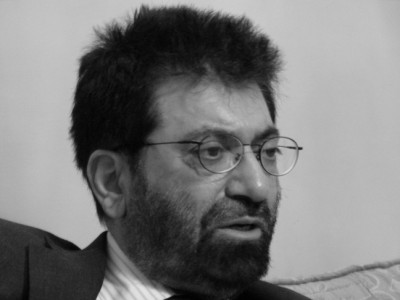Mohammad Shehzad.
Interview: Dr Tariq Banuri, an internationally acclaimed Pakistani economist/environmentalist currently the Director, Division for Sustainable Development (Department of Economic and Social Affairs) at the United Nations, New York.
This exclusive interview with www.pol-dev.com on energy was conducted in Islamabad when he was in town on a short visit.
Energy is the most urgent environmental/development issue. No energy means, our development process will slow down; we won’t have clean water and our children will die; our frustration level will increase and we will have political unrest. Pakistan has more energy on per-capita basis than India but it has a bigger load shedding problem. Energy issue must be addressed in a way that it does not create additional problems. Energy is the heart of development. It created the industrial revolution. Cheap fossil fuel was a miraculous source of energy. It produced all these benefit that the world is enjoying today. But it left 80 percent of the world behind. Now fossil fuels are depleting. And we need energy to sustain the development. We can’t afford energy scarcity. What we needs is ‘energy abundance’. We need energy that is affordable. We need to explore how can we have energy that is abundant, affordable and sustainable, says Dr Tariq Banuri, an internationally acclaimed Pakistani economist/environmentalist currently the Director, Division for Sustainable Development (Department of Economic and Social Affairs) at the United Nations, New York.
He has broad experience in policy development, combining research with organizing and leading multi-stakeholder processes. A recipient of Sitarae Imtiaz, his work has focused on conceptual as well as practical issues in governance for sustainable development, including the analysis of national and global institutions, legal systems and processes, community development at local levels, collaborative management of natural resources, civil society processes, and economic and trade policies. He received his PhD in Economics from Harvard University in 1986.
Without pretending to be an expert, Banuri is apprehensive about nuclear/coal as energy options. ‘Nuclear is too risky, expensive and ineffective. After the Fukushima, the cost of cleaning up runs into hundreds of billions of dollars. Pakistan’s total revenue is less than $20b. Thus, a poor country like Pakistan can’t afford and manage it, though it has a couple of nuclear energy plants which are neither here nor there,’ says Banuri.
‘Some 20 years ago, there was great excitement about the Thar coal deposits. During the second Benazir government (early 1990’s), billionaires from all over the world were in Pakistan. Several MoUs were signed but nothing happened. Coal is not a long term solution. It can’t be employed soon. Climate change is putting pressure on us. We need to move fast. Before environmental pressures become binding, we must meet our energy needs. Coal is a dirty technology that is of no use if we have to wait for 10-20 years to develop it.’
Banuri considers Bhasha and other dams as a step in right direction though these projects will take 10-20 year to be effective. He reveals that shale gas – though a fossil fuel but yet a cleaner technology than coal – will be a better option. Inexpensive ways have been discovered to extract shale gas that is in abundance in Pakistan and all over the world. Wind and solar are the renewal technologies. Wind is by and large competitive but the risk levels are higher as compared to developed countries. However, it can be achieved through some global mechanism that lower the non-financial risks. Pakistan is working on it by setting up some wind farms. Solar is too expensive. The government is making efforts to bring its cost down with the cooperation of China and within five years it can be competitive. However, Pakistan needs to enhance safe and consensus based hydro resources. If it is true that shale gas reserves are larger than our conventional gas resources and environmental cost is not too high then it could be a great and quick technology. We already have the infrastructure. All we have to do is to extract it and plug it into existing gas pipelines.
Banuri maintains that solar is the best energy option if made competitive through investment or development cooperation, especially with China with whom we have strong ties. At one stage, Pakistan can also export it.
Courtesy:
Mohammad Shehzad is a freelance writer, researcher and poet, who has published his work in politics and development for leading organizations like The Sunday Times in London, AFP, The Hindu and its sister publication Frontline, The Hindustan Times, Indian Express, Rediff.com, One World [a British portal on development issues], The Friday Times, Dawn, and The News. His poetry has been published by literary societies in the US and Britain.
In March 2004, he launched two newsletters – Pakistan Media Monitor [PMM] and Terrorism Watch Pakistan [TWP]. PMM is a weekly summary of Pakistani jihadi/mainstream national and regional media. TWP monitors on monthly basis incidents of terror taking place in Pakistan. Mohammad is commissioned short/crisp political reports. He has shared this knowledge with the concerned audience at home and abroad.
In August 2010, He launched ‘The Politics & Development Magazine’ – www.pol-dev.com – a web-based magazine to promote various issues related to politics and development journalism. Mohammad is a formal disciple of tabla and classical vocal music.
The Politics and Development Magazine, http://www.pol-dev.com/






















